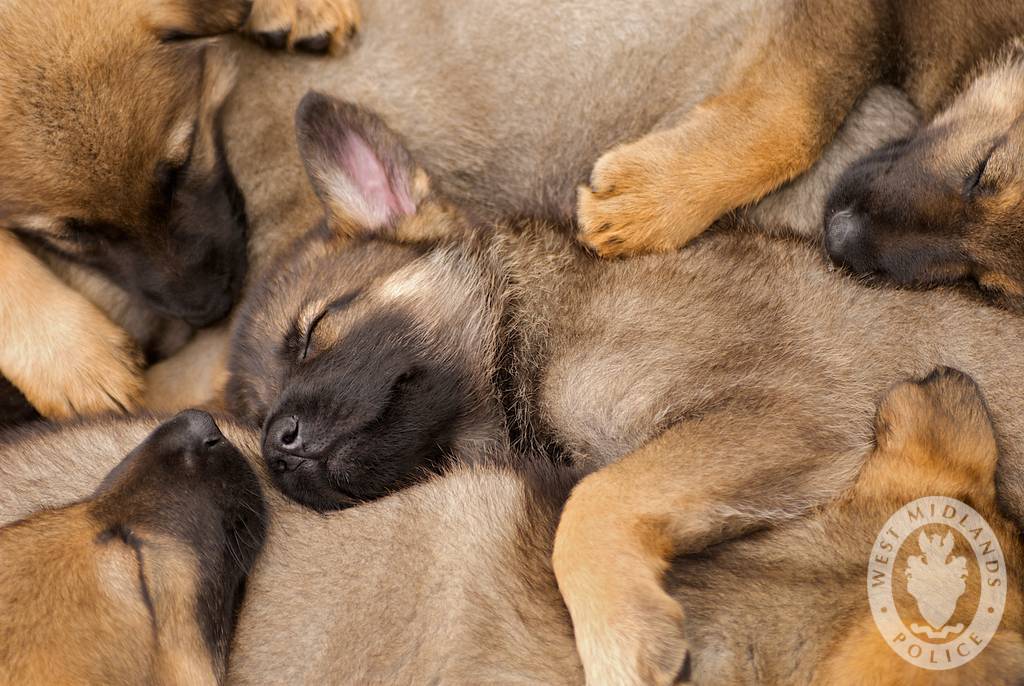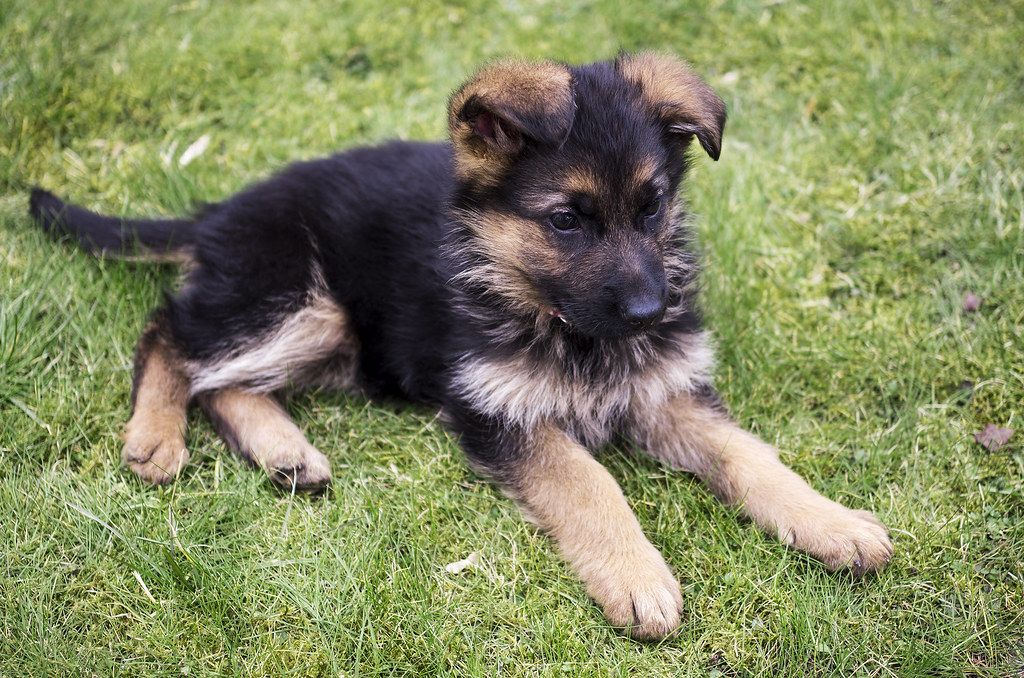How Many Puppies Can a German Shepherd Have? Understanding Litter Sizes of This Popular Breed.
The German Shepherd is a popular breed of dog known for its intelligence, loyalty, and protective nature. Many people choose to breed German Shepherds, and one common question that arises is how many puppies a German Shepherd can have.
According to several sources, the average litter size for a German Shepherd is between 5 and 8 puppies. However, litter sizes can vary greatly, with some litters having as few as 1 or 2 puppies and others having as many as 15. Factors that can affect litter size include the age and health of the mother, genetics, and environmental factors.
It's important to note that while larger litters may seem desirable, they can also pose challenges for the mother and the breeder. Breeding should always be done responsibly, with the health and well-being of the mother and puppies as the top priority.
German Shepherd Breeding Basics
Breeding German Shepherds is a complex process that requires careful planning, preparation, and attention to detail. Before breeding, it is essential to ensure that both the male and female German Shepherds are healthy and free of any genetic or hereditary diseases. Additionally, the breeding stock must have a stable temperament and pass hip certification.
The heat cycle of a female German Shepherd lasts for approximately 21 days, during which time she is receptive to mating. It is important to carefully monitor the female's behavior during this time and to schedule breeding at the appropriate time in her cycle to maximize the chances of conception.
Once conception has occurred, the female German Shepherd will be pregnant for approximately 63 days. During this time, it is important to provide the female with proper nutrition and care to ensure the health of both the mother and the developing puppies. Regular veterinary checkups are also essential to monitor the progress of the pregnancy and to address any potential health concerns.
After the puppies are born, they should be registered with the American Kennel Club (AKC) to ensure that they are purebred German Shepherds and to provide documentation of their lineage. It is also important to carefully screen potential buyers to ensure that the puppies are placed in loving, responsible homes.
Breeding German Shepherds can be a rewarding experience, but it requires significant time, effort, and resources to do so responsibly. By following best practices and working with reputable breeders, individuals can help to ensure the health and well-being of these beloved dogs for generations to come.

Understanding the Litter Size
German Shepherds are known to be prolific breeders and can have litters ranging from one to as many as 17 puppies. However, the average litter size for a German Shepherd is between five and eight puppies.
Several factors can influence litter size, including genetics, age, health, and individual variations. For instance, a young female German Shepherd may have a smaller litter size than an older female. Additionally, the size of the litter may vary depending on the size and health of the parents.
It is important to note that larger litters can pose some challenges, such as increased competition for resources, higher risk of complications during birth, and more demanding care requirements for the mother and puppies. On the other hand, smaller litters can be easier to manage and may result in healthier and more robust puppies.
Overall, it is essential to provide proper care and attention to both the mother and puppies during the gestation period and after birth. This includes regular check-ups with a veterinarian, a balanced diet, and a safe and comfortable environment for the mother and puppies.
In summary, while German Shepherds can have litters ranging from one to 17 puppies, the average litter size is between five and eight. Several factors can influence litter size, and it is important to provide proper care and attention to the mother and puppies during and after birth.
Factors Influencing Litter Size
The size of a German Shepherd's litter can vary depending on several factors. One of the most significant factors is the age of the mother. Generally, younger dogs tend to have smaller litters than older ones. Additionally, the health of the mother can also play a role in litter size. A healthy mother is more likely to have a larger litter than one that is in poor health.
Inbreeding can also have an impact on litter size. When dogs are bred with close relatives, it can increase the likelihood of genetic defects and smaller litter sizes. Therefore, it is important to avoid inbreeding when breeding German Shepherds.
Genetics can also influence litter size. The size of the mother and father can affect the number of puppies in a litter. Generally, larger dogs tend to have larger litters than smaller ones. However, this is not always the case, and individual variations can occur.
Finally, artificial insemination can also affect litter size. In some cases, artificial insemination can result in larger litters than natural breeding. However, this is not always the case, and individual variations can occur.
Overall, there are several factors that can influence the size of a German Shepherd's litter. While some factors, such as age and health, are more significant than others, it is important to consider all of these factors when breeding German Shepherds.

Nutrition and Weight Impact
The nutrition and weight of a German Shepherd can have a significant impact on the number of puppies they can have. Proper nutrition and maintaining a healthy weight can increase the chances of a larger litter.
Protein is an essential nutrient for pregnant German Shepherds. It is necessary for the growth and development of the puppies. A diet that is high in protein can help ensure that the puppies are healthy and strong.
Fat is also an important nutrient for pregnant German Shepherds. It provides energy for the mother and helps to support the growth and development of the puppies. However, it is important to ensure that the mother does not become overweight, as this can lead to complications during pregnancy and delivery.
Carbohydrates are another important nutrient for pregnant German Shepherds. They provide energy for the mother and help to support the growth and development of the puppies. However, it is important to ensure that the carbohydrates come from high-quality sources, such as whole grains and vegetables.
Overall, it is important to provide a balanced and nutritious diet for pregnant German Shepherds. This can help to increase the chances of a larger litter and ensure that the puppies are healthy and strong.
Health Issues and Litter Size
German Shepherds are generally healthy dogs, but there are some health issues that can affect their ability to have puppies. These health issues can also affect the size of the litter. Some of the health issues that can affect the litter size of a German Shepherd include:
- Infections: Infections can affect the reproductive system of a dog, which can lead to a smaller litter size. It is important to keep your dog healthy and to take them to the vet regularly to prevent infections.
- Age: The age of the dog can also affect the size of the litter. As a dog gets older, their reproductive system may not function as well, which can lead to a smaller litter size.
- Genetics: The genetics of the dog can also play a role in the size of the litter. Some German Shepherds may have larger litters of ten to twelve puppies, while others will have smaller litters of two to four puppies.
- Inbreeding: Inbreeding can also lead to smaller litter sizes and health issues in puppies. It is important to avoid inbreeding and to choose a reputable breeder who does not engage in this practice.
During pregnancy, it is important to take good care of the mother dog to ensure that she has a healthy litter. This includes providing a nutritious diet, regular exercise, and proper veterinary care. It is also important to monitor the mother dog for any signs of complications during pregnancy, such as difficulty breathing, lethargy, or loss of appetite.
Overall, there are several factors that can affect the litter size of a German Shepherd. By taking good care of the mother dog and addressing any health issues, breeders can increase the chances of a healthy litter.

Gestation Period and Birth
German Shepherds have a gestation period of approximately 63 days, or just under 9 weeks, following conception. However, it is important to note that this timeline can vary depending on factors such as litter size and the size of the mother. According to Bubbly Pet, a female German Shepherd can give birth as soon as 58 days or as late as 68 days.
During the gestation period, it is important to provide proper care for the mother, including a balanced diet and regular veterinary check-ups. As the due date approaches, the mother may exhibit signs such as nesting behavior and a decrease in appetite. It is important to have a veterinarian monitor the mother's health and progress throughout the pregnancy.
The size of a German Shepherd's litter can vary, but the average litter size is between five and eight puppies. However, factors such as the age and health of the mother, as well as the size of the litter, can impact the number of puppies born. According to German Shepherd Dog HQ, a German Shepherd can give birth to as few as one or as many as 15 puppies in a single litter.
The birth process, also known as whelping, can take several hours and may involve stages such as labor, delivery, and afterbirth. During this time, it is important to provide a safe and comfortable environment for the mother and her puppies. It is also important to monitor the mother and her puppies for any signs of distress or health issues, and to seek veterinary care if necessary.
Overall, proper care and monitoring during the gestation period and birth can help ensure the health and well-being of both the mother and her puppies.

Post Birth Puppy Care
After giving birth, German Shepherd puppies require proper care to ensure their health and wellbeing. Here are some essential aspects of post-birth puppy care:
Feeding
Newborn puppies should be fed every two to three hours for the first few weeks of their lives. The mother's milk is the best source of nutrition for the puppies, as it contains all the necessary nutrients for their growth and development. If the mother is unable to nurse the puppies, a high-quality puppy milk replacer can be used.
Socialization
Socialization is an important aspect of puppy care. Puppies should be exposed to different people, animals, and environments from an early age to help them become well-adjusted and confident dogs. This can include taking them for walks, introducing them to new people, and exposing them to different sounds and sights.
Health
Puppies should be taken to the vet for regular check-ups and vaccinations. They should also be dewormed and treated for fleas and ticks regularly. It's important to keep the puppies' living area clean and free of any potential hazards, such as sharp objects or toxic substances.
In summary, post-birth puppy care involves feeding, socialization, and health. By providing proper care, German Shepherd puppies can grow up to be healthy and happy dogs.

Comparative Analysis with Neapolitan Mastiff
When it comes to comparing the litter size of German Shepherds and Neapolitan Mastiffs, there are some notable differences. According to Dogell.com, German Shepherds give birth to litters of 6 to 8 puppies on average, while Neapolitan Mastiffs have smaller litters of 2 to 5 puppies.
It's worth noting that both breeds can have larger or smaller litters than the average, and there are many factors that can affect litter size, including genetics, age, and health. However, these averages give a good idea of what to expect when it comes to breeding these two breeds.
Aside from litter size, there are other differences between the two breeds that are worth considering. For example, Neapolitan Mastiffs tend to be larger and heavier than German Shepherds. According to The Spruce Pets, Neapolitan Mastiffs can weigh up to 150 pounds, while German Shepherds typically weigh between 50 and 90 pounds.
In terms of temperament, both breeds are known for being loyal and protective, but there are some differences. Neapolitan Mastiffs can be more stubborn and independent, while German Shepherds are often more trainable and eager to please.
Overall, while there are some similarities between German Shepherds and Neapolitan Mastiffs, there are also some important differences to consider when it comes to breeding or adopting one of these breeds.
Conclusion
In conclusion, German Shepherds can have litters ranging from 1 to 15 puppies, with the average litter size being around 8 puppies. However, the size of the litter can be influenced by various factors such as age, health, and genetics.
It's important to note that while German Shepherds can have up to two litters per year, it's recommended to give them enough time to rest and recover between litters. Additionally, proper care and nutrition during pregnancy can help ensure the health of both the mother and her puppies.
Overall, if you're considering breeding German Shepherds, it's important to do your research and consult with a veterinarian to ensure the best possible outcome for the mother and her puppies.




